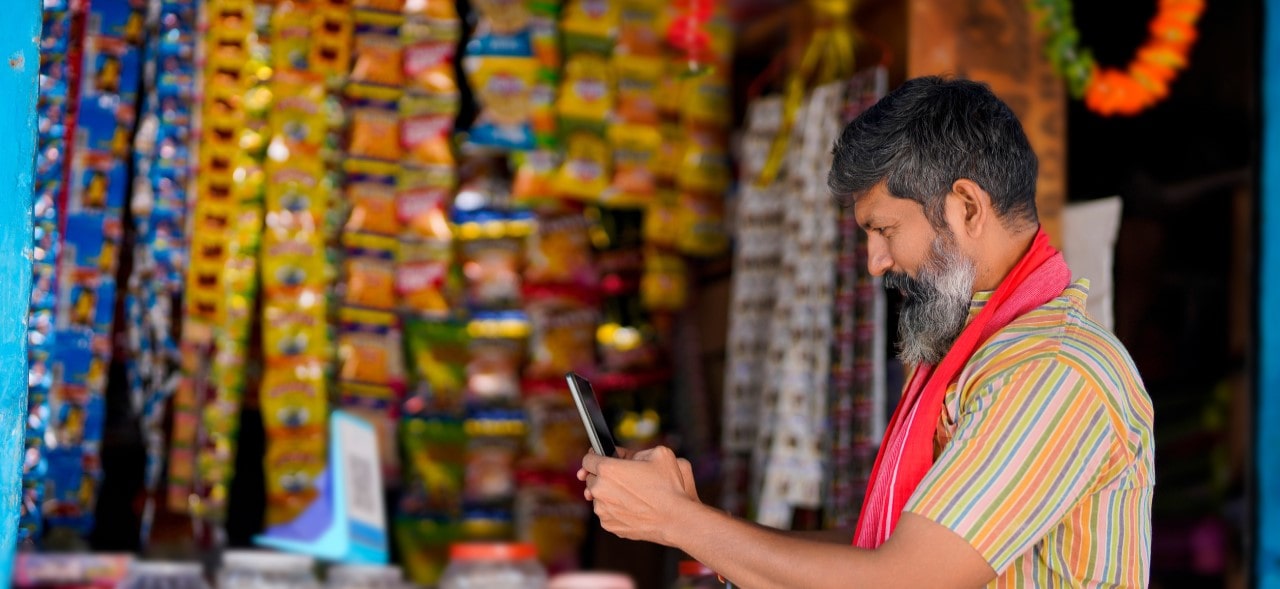
MSC has partnered with the Griffith Asia Institute and the ADBI to address the digital divide in Bangladesh through an experimental impact evaluation study.
This RCT seeks to identify best practices for the adoption of digital financial services (DFS) and overcome the barriers nonusers and low-frequency users face.
The study compares outcomes between treatment and control groups with a diary-based tool to capture real-time data on financial behaviors and challenges over a year.
Insights from this research will inform strategies to enhance DFS adoption and financial inclusion and highlight the critical role of cross-institutional partnerships to address development challenges.
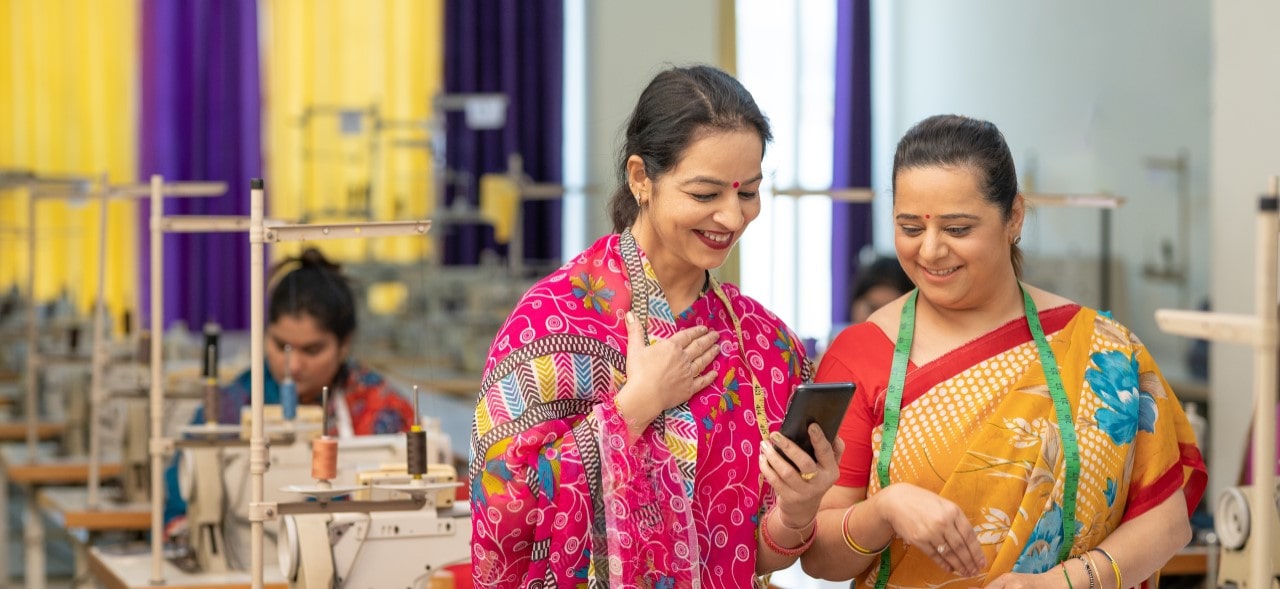
The emergence of new digital platforms presents a crucial opportunity for microenterprises to build businesses, promote financial inclusion, and reduce the gender gap. MSC and Busara conducted a scoping study to develop a strategic engagement plan to guide donors, such as the Bill & Melinda Gates Foundation (BMGF), in funding and programming efforts that use digital financial services for microenterprises.
Busara and MSC conducted the study across four countries in Sub-Saharan Africa, South Asia, and Southeast Asia. Busara focused on Nigeria and Kenya due to their well-established platform innovation ecosystems that feature a wide array of digitally-led products and services. MSC deep-dived into Bangladesh and India, as these countries have a significant presence of microenterprises but face substantial funding gaps.
The study sought to achieve several key outcomes:
- Examine microenterprise performance: We evaluated how microenterprises that participate in digital platforms navigate business challenges and assessed the impact on their revenues, costs, finance, business models, products, and customers.
- Understand exclusion impacts: The research examined the effects on microenterprises excluded from digital platforms, including their ability to conduct business, access finance, and engage with consumers.
- Focus on women-owned microenterprises: We specifically investigated the challenges of women-owned microenterprises and the impacts of these challenges on their functioning. We also looked at skill gaps, technical knowledge, the need for business training, and access to finance.
- Uncover the supply-side perspective: The study assessed the needs and gaps from the perspective of digital retail and service platforms, transport and logistics platforms, and financial institutions.
- Assess government support: We explored the existing and potential government support available to microenterprises to help build their businesses.
The core teams from Busara, MSC, and the BMGF were involved throughout the study, along with regional program officers and industry stakeholders. Regular meetings and updates ensured that the research strategy remained updated and aligned with the needs of microenterprises. This collaborative approach helped avoid duplication of efforts and ensured that the study addressed the right questions.
The study’s findings and strategic recommendations are now poised to guide donors in their efforts to support microenterprises through digital platforms and ultimately enhance their resilience and economic impact.
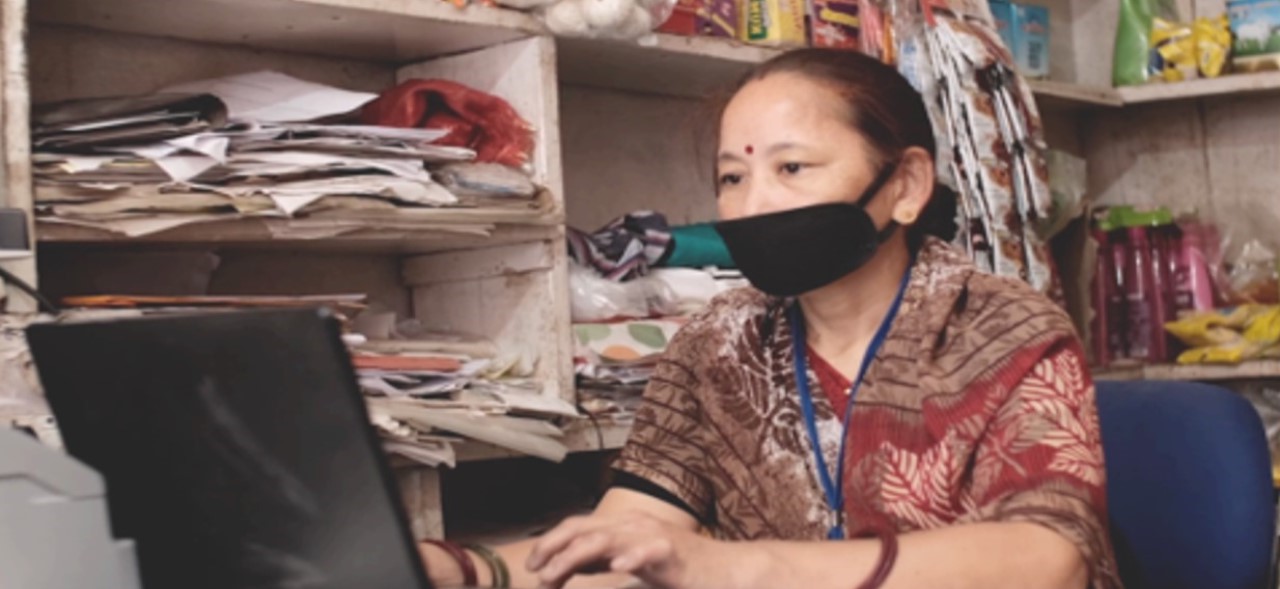
MSC conducted a workshop with SEWA Sarthak senior management to finalize BC Model Pilot – Action Plan that would test certain interventions based on Strategic Business Plan.
MSC collaborated with Sarthak Private Limited to co-create a viable business model for them as well as undertake capacity-building activities to strengthen their business operations.
It is an ongoing assignment where MSC is working closely with Sarthak to provide technical support to strengthen their women-led agent network.
MSC undertook field visits and facilitated interactions at all levels to develop strategy suggestions for SEWA Sarthak.
MSC also co-created a Strategic Business Plan for Sarthak SEWA for a viable business model for them as well as undertook capacity-building activities to strengthen their business operations.
Outcomes and Impact
- A Strategic Business Plan co-created by MSC and Sarthak SEWA is in place to develop a viable business model for them.
- Recommendations were made by MSC for Sarthak SEWA to undertake capacity-building activities to strengthen their business operations.
- Critical concerns of the organization like BC identification, training, Grievance Redressal Mechanism, technology adoption and liquidity management, can be streamlined with the aid of MSC’s research
- MSC’s Action Plan for future endeavors will help Sarthak in standardized feasibility assessment, and convergence which is critical while entering a new location.
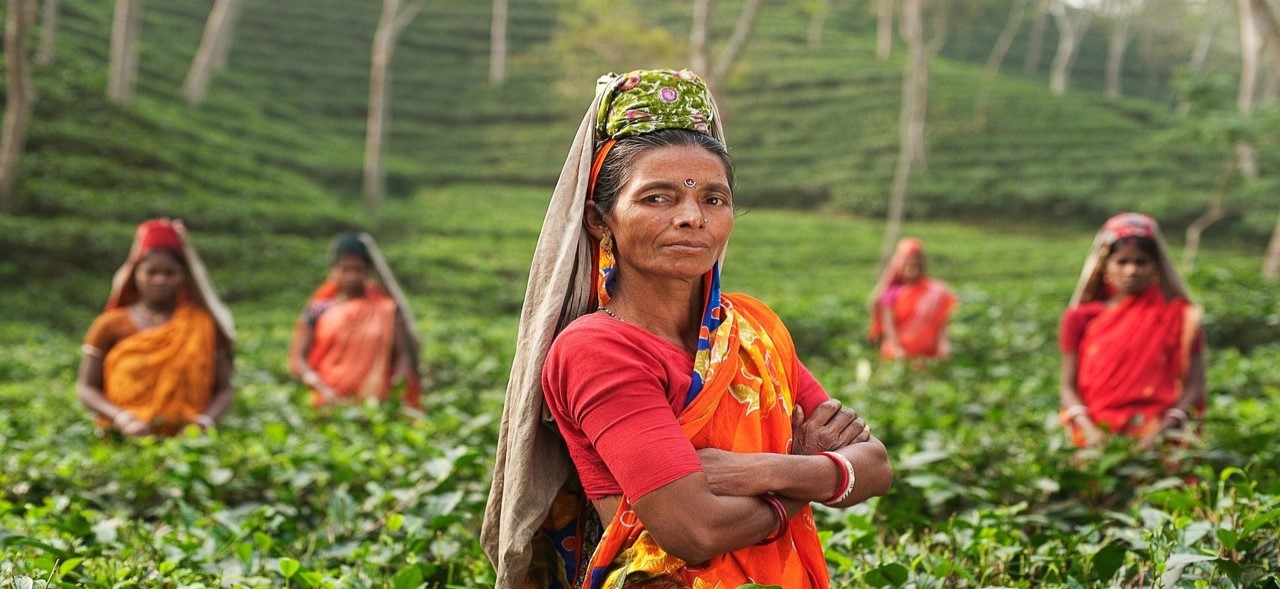
MSC is engaged as a technical assistance and knowledge partner to support in strengthening the Women Entrepreneurship Platform (WEP). The WEP is a Government of India-backed initiative launched by the NITI Aayog in 2017 to promote a conducive ecosystem for women’s entrepreneurship in India. WEP intended to do this by becoming a unified aggregator of all relevant information and services for women entrepreneurs in India. Our work focuses on the following aspects of WEP:
- Research and policy insights
- Access to finance
- Mentoring and Networking
- User data analytics and outreach to states and smaller cities
- Content management
Outcomes and impact
1. Research
2. Mentorship
- A Dedicated mentorship platform at G20 for WEs
- Launch of WEP-Unnati mentorship cohort
3. Access to finance
- A roundtable discussion with key stakeholders from the financial sector on “Access to credit for micro and small women entrepreneurs”
- Launch of “Financing Women Collaborative”
4. Content management
- Platform hosts information on schemes supporting entrepreneurship which includes 70 central, 433 state, and 52 SIDBI and NABARD schemes, and information on incubators and accelerators across India
5. Outreach
- Increased outreach of the WEP platform to new states
- Increased the number of women entrepreneurs regularly using the platform to ~30000
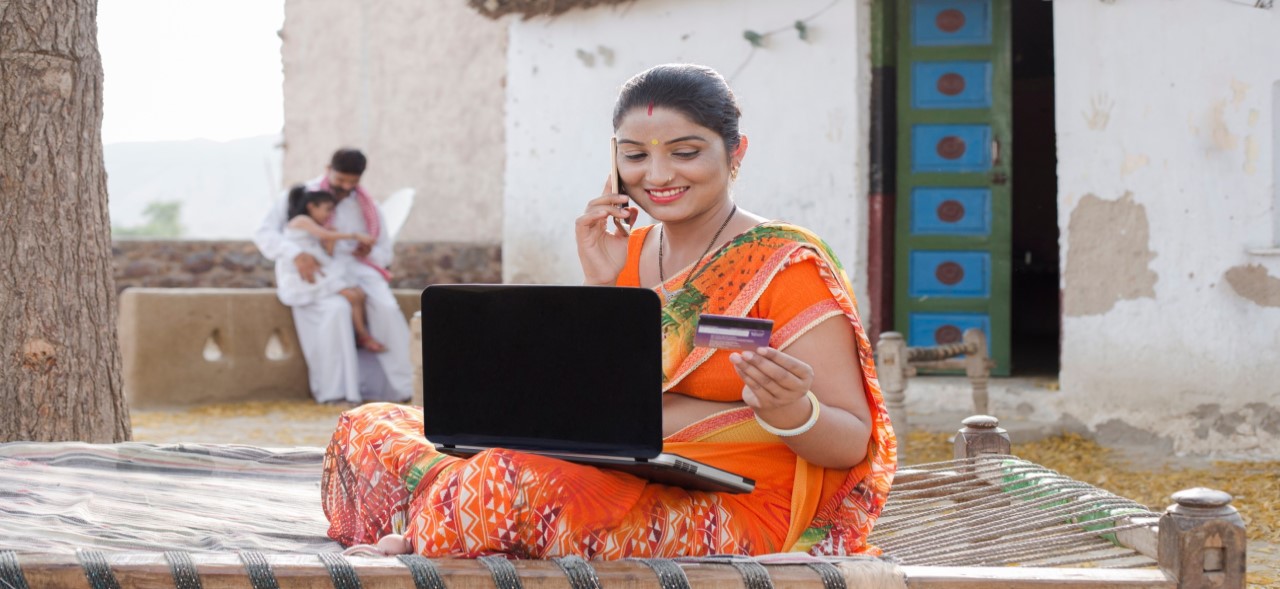
To make certain that the platform caters effectively to ‘small-scale producers’, especially women SSPs in Bihar, and is inclusive in its design and use. The platform aims to be a one-stop platform for all farmer-facing requirements like finance, availing schemes, market linkages, inputs and outputs, and relevant ag-advisory to improve climate resilience.
The platform will be guided by the following strategic considerations:
- Targeted Approach
- Human-centric design and robust architecture
- FAIR Data Principles
- Adaptive Rollout
- Leverage Existing Innovations
- Expert Partners with a focus on physical and assisted services
- Co-Creation
- Streamlined Approvals
- Data-Driven Insights and agile development
Approach to drive access to and adoption of the DFS platform by SSPs in Bihar:
- Partnering with GoB to integrate DFS with existing farmer-facing schemes, leveraging support from agricultural directorates.
- Utilizing institutions like JEEViKA and community organizations for SSP onboarding, awareness building, and gradual adoption of the platform.
- Conducting awareness campaigns through KVKs, agriculture universities, SBCC initiatives, and various communication channels, including social media and government communication channels.
Envisaged Outcomes and impact
- Holistic access to tailored services for all Bihar’s small-scale farmers.
- Lowered costs and increased income for farmers, enhancing their livelihoods.
- Significant boosts in agricultural productivity and food security.
- Empowered women farmers excelling in various roles.
- A transformed agricultural ecosystem with streamlined coordination.
- Enhanced competitiveness through access to diverse services.
- Greater resilience to climate change for sustainable farming practices.
- Potential outcome is that by the end of 5 years, we anticipate having 7 to 8 million registered SSPs, with 3 to 4 million actively using at least one service or feature.
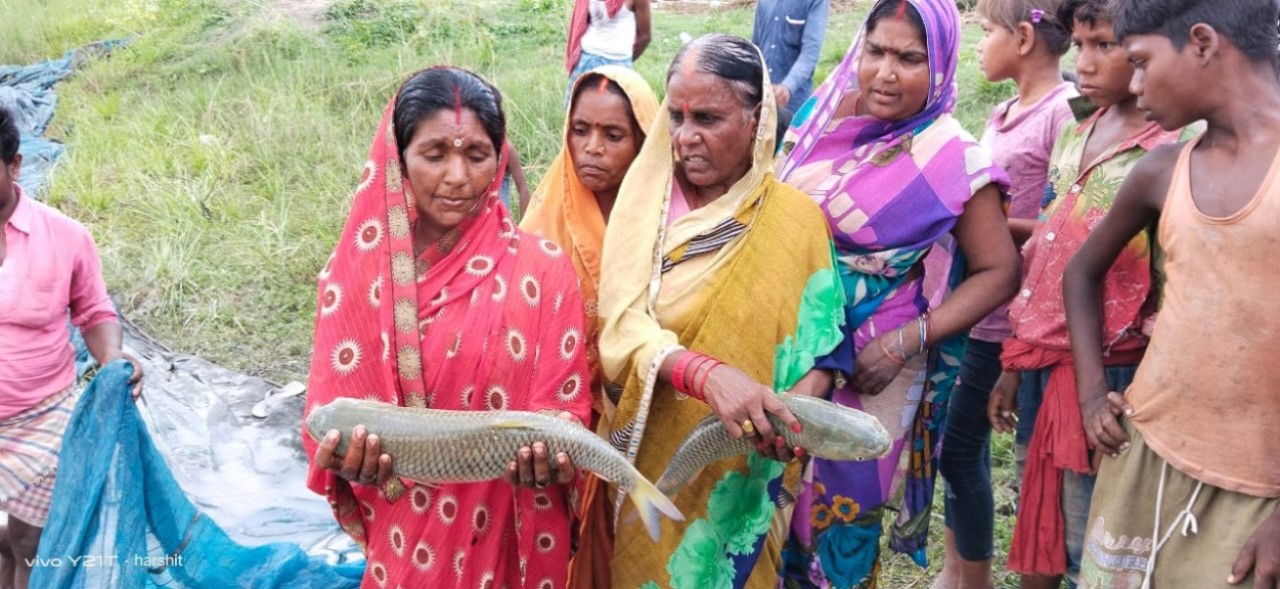
This investment would target women’s self-help groups (SHGs) and female smallholders to improve women’s nutrition, livelihoods, and empowerment in aquaculture and fisheries. The investment will therefore focus on small-scale indigenous aquaculture and fisheries, driven by women’s economic collectives, particularly WSHGs and women-led fisheries producer groups. The systems-level goals of the project are:
- Women-centric and gender-transformative
- Market-led
- Replicable
- Sustainable aquaculture and fisheries programs and models integrated with JEEViKA, across Bihar, with potential for replication at the national level
The implementation will leverage a strategic partnership between MSC and the following key investment players, to achieve the envisaged outcomes:
- JSPVAT: Leverage JSPVAT’s strength, supported by JEEViKA and the World Bank, to create scalable aquaculture models for women’s self-help groups (SHGs).
- BAVAS: Collaborate with BAVAS and DAFR to improve aquaculture policies, using lessons from the successful BAMNet program, supported by the Gates Foundation.
- WorldFish: Partnering with WorldFish to tap into global and local aquaculture expertise, aiming to reduce poverty and malnutrition in Bihar.
Envisaged Outcomes and impact
- Increased incomes and resilience for women and men engaged in small-scale aquaculture and fisheries, fostering economic growth within local communities.
- Greater access to affordable aquatic nutrition, particularly benefiting women, girls, and young children, resulting in improved health and cognitive development.
- Strengthened Women’s Economic Collectives (WECs), promoting economic autonomy, collective marketing, and value-addition opportunities for women.





